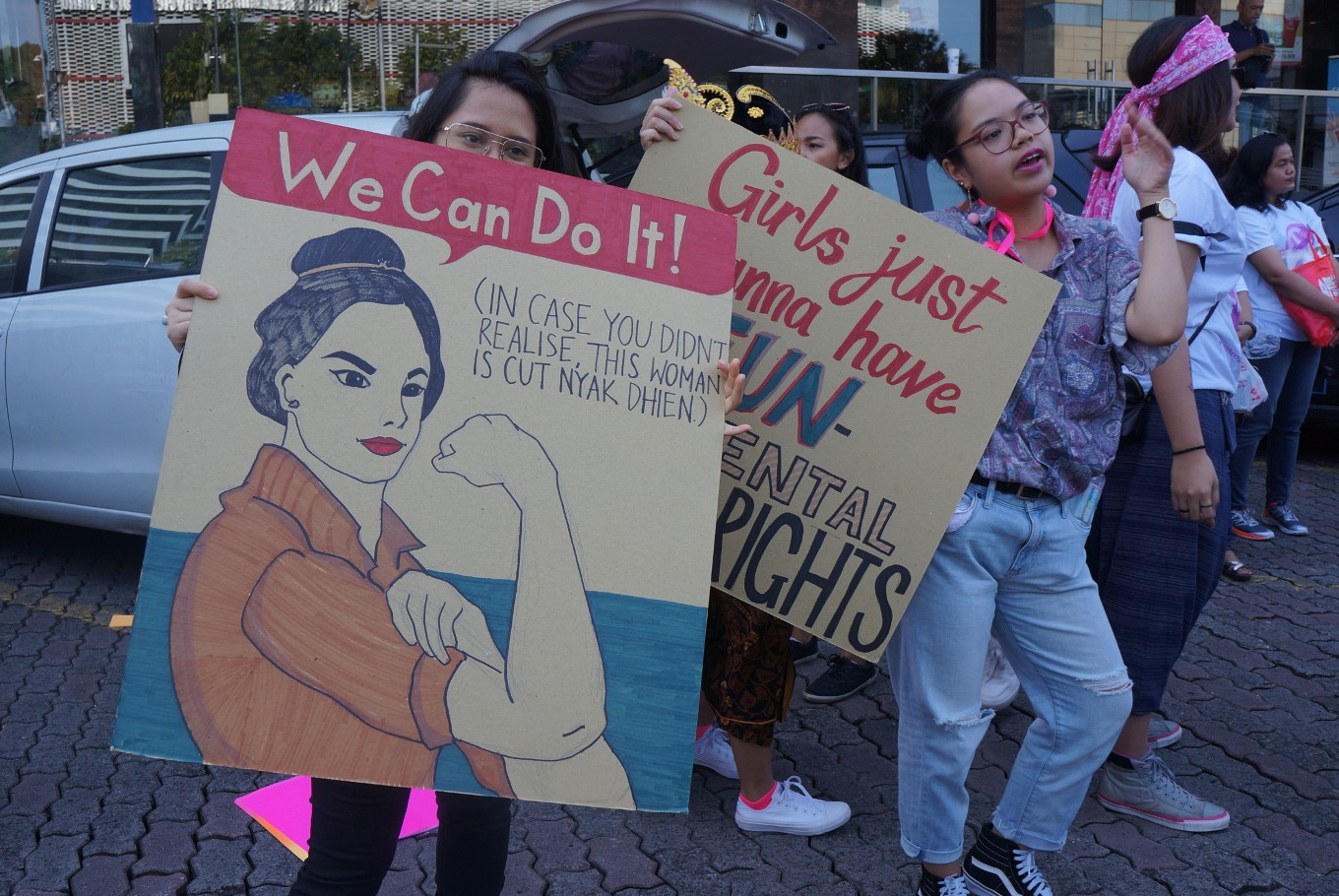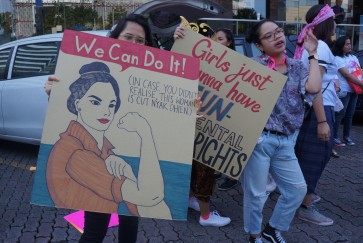Popular Reads
Top Results
Can't find what you're looking for?
View all search resultsPopular Reads
Top Results
Can't find what you're looking for?
View all search resultsMake feminism great again
Never before had a massive group of women, men and transgender people banded together to voice their various demands.
Change text size
Gift Premium Articles
to Anyone
O
n the morning of Saturday, March 4, almost 2,000 people took to the streets to participate in Jakarta Women’s March 2017 as part of the commemoration of International Women’s Day on March 8. While it was inspired by the women’s march that occurred as a response to the inauguration of United States President Donald Trump in January, seeing this event as a mere echo of that march is a failure to see its wider significance.
The event started from a Facebook post when someone mused about having “our own Women’s March” about a month ago. The idea quickly gained ground among young feminists on Facebook. The intention was to hold a public rally that united all women and all feminists (women and men) to promote gender equality and gender justice and to elevate other intersecting social issues.
Women’s movements marching for a specific cause is nothing new in Jakarta, but never before had a massive group of women, men and transgender people banded together to voice their various demands. Their posters showed the assortment of concerns brought to the rally: from body autonomy, an end to sexual violence and street harassment and equality for the LGBTIQ (lesbian, gay, bisexual, transgender, intersex and queer) community, to environmental protection and agrarian rights; and from proud proclamations of individual liberty to collective calls for social justice.
In this rather depressing time, when much of the public discussion revolves around Jakarta’s gubernatorial election, and when religion and morality are too often used to frame political discourses, further polarizing people, the march was a breath of fresh air for at least three reasons.
First, it marked the involvement of young, educated middle class women and men who identify themselves as feminists, but who are not your typical activists. For many, this might be the first time ever they were involved in political activism of some sort. This shows that feminism as a cause is attractive enough to get such young blood out of their comfortable homes (on a Saturday morning, nonetheless) and onto the streets.
Secondly, the inclusive nature of the march shows the relevance of feminism as a movement that acknowledges the intersection of race, gender, class, sexuality and other aspects of identity that complicate oppression and marginalization. So among the feminist participants and speakers from women’s groups were people representing the LGBTIQ community, differently abled women’s groups, environmental and agrarian rights NGOs and indigenous peoples’ organizations.
For this last reason, might I be bold to assert the third reason: a movement like the Women’s March, when expanded and continued to be mobilized in a more organized way and with a clear, targeted outcome (like, say, the passing of the Anti-Sexual Violence Bill) could — to alter the expression of a certain individual against whom the original women’s march in January was held — “make feminism great again.”


















